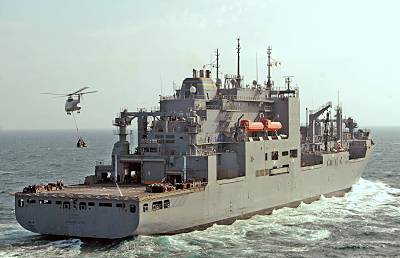KABUL, Afghanistan, Sept. 3, 2010 — Building Afghan security forces that are capable, professional and sustainable is going to take a long time, but also is key to long-term success, the general who leads the NATO training mission in Afghanistan said here today.
Army Lt. Gen. William B. Caldwell IV explained the effort to reporters traveling with Navy Adm. Mike Mullen, chairman of the Joint Chiefs of Staff, while Mullen was in a series of private meetings at the U.S. Embassy and the International Security Assistance Force headquarters.
When he stood up the NATO training mission here in November, Caldwell said, the enormity of the challenge was quite evident. No Afghan army or police training commands existed. The only standard for graduation from basic training was starting the course and still being there on the last day of training. Most police received no real training. The ethos that guides professional military forces was absent in the Afghan security forces. Recruiting was low, and attrition was high.
In fact, Caldwell said, the Afghan army had “negative growth,” recruiting only 800 new soldiers in September 2009 while losing more than 2,000 through attrition.
With a target today of growing the Afghan security forces by 55,000 members to 306,000 by December 2011, Caldwell said, the current attrition rates indicate that 141,000 new members must be recruited and trained. If attrition improves, he added, the recruiting requirement would ease accordingly.
The focus of the NATO training mission for its first 10 months has been to turn those trends around and lay a foundation for the professionalization of Afghanistan’s security forces, the general said. The Afghan army now has had a training command for six months.
“It’s going like gangbusters,” Caldwell said. “We’ve got the right advisors and they’re working with them. They’ve appointed a good Afghan commander, and they are taking control of the training for their Afghan army.” A training command for Afghan police was activated in May, and a commander has just been appointed, Caldwell said, and the Afghan police now have a good code of conduct.
Afghan police have a reputation for being corrupt, Caldwell said, citing reports of police officers shaking people down for money, using tactics such as setting up illegal checkpoints and charging people to pass through them. When he found out that police officers were being paid far less than a living wage, he said, he understood how that could happen.
“We had set the conditions so that a policeman … was not even able to make a basic minimum wage by serving his country,” Caldwell said. Now that police make a decent wage on a par with their army counterparts, he added, the incentive for corruption diminishes and police have a sense they are part of a professional force that is a viable career option.
Soldiers and police now can receive additional incentive pay for serving in dangerous areas, as well as longevity pay raises that reward them for continuing to serve.
And trainees now must meet standards. The weapon qualification rate for Afghan soldiers and police at the end of basic training is now 97 percent. “That’s just as good as the U.S. Army,” Caldwell noted. The 3 percent who don’t qualify at that point receive more training and then qualify.
Leader development is a limiting factor in building professional forces, Caldwell said, and the training mission has taken on that issue as a top priority, greatly increasing capacity to train soldiers and police officers to become effective leaders.
Another limiting factor is literacy, the general said, noting that 80 percent of the recruits can’t read or write. “It’s real hard, especially for us, to comprehend that they couldn’t even write their names and they didn’t know any numbers,” he said. Weapons accountability is impossible, he noted as an example, when the soldiers or police can’t read the serial number and know whether they have the right weapon. If a recruit can’t read the list of equipment he was supposed to be issued, the general added, he won’t know if the person issuing the equipment is holding equipment back to sell on the black market, so the crime goes undetected.
When the NATO training mission stood up in November, some Afghan recruits were enrolled in optional literacy programs, but no mandatory programs existed, Caldwell said. Now, 23,000 members of Afghanistan’s security forces are in mandatory literacy training designed to give them a third-grade reading level. That number will be 50,000 in December, he added, and is expected to be 100,000 on any given day by June.
In the effort to move Afghan forces toward self-sufficiency, Caldwell noted, a basic level of literacy becomes especially important as training goes beyond infantry skills and starts to include more specialized areas such as transportation, maintenance and medical disciplines.
Another challenge is finding qualified Afghan instructors, the general said. Hiring only Afghan instructors, he explained, is critical to building the enduring capability that is key to long-term success.
And training doesn’t end when Afghan units finish their formal training, Caldwell said. The vast majority of operations now involve Afghan units working alongside ISAF partners, so their training continues as they learn on the job from professional forces.
Though the progress has been considerable in 10 months, Caldwell said, it will be a long time before the Afghan security forces have matured to the point at which they can see to all of their training, recruiting and retention needs without help and field professional and sustainable forces on their own.
“Our mission is not one that is done by next summer, or even next December,” Caldwell said. The need to continue growing and professionalizing the Afghan forces will remain for some time, he added.
Source:
U.S. Department of Defense
Office of the Assistant Secretary of Defense (Public Affairs)

 von
von 